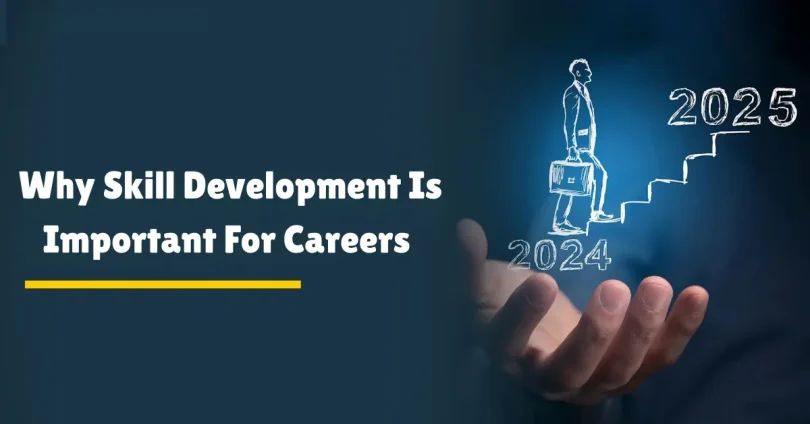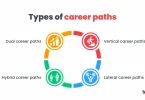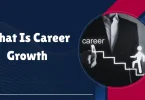When you start thinking seriously about your career, it’s natural to focus on education, certifications, and work experience. These help you get noticed and show your qualifications. Knowing why skill development is important for careers is equally crucial, as it can set you apart and boost your long-term success.
Skills go beyond daily tasks—they are what make you stand out in a competitive job market. For example, two candidates may have the same degree and experience, but the one with stronger communication and problem-solving skills is far more attractive to employers.
Today, companies aren’t just interested in what you studied or where you’ve worked—they want to see what you can do and how adaptable you are. Developing your skills ensures you meet these expectations and stay ahead in your career.
Understanding Skill Development
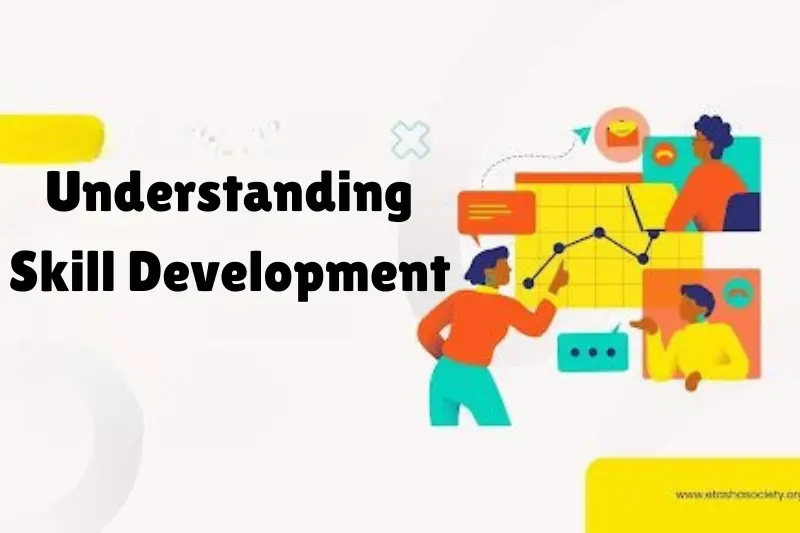
Skill development refers to the process of learning, improving, or acquiring abilities that enhance your performance in the workplace. It encompasses:
- Technical skills: These are specific, job-related abilities, such as coding, graphic design, digital marketing, data analysis, or machine operation.
- Soft skills: Often referred to as interpersonal or human skills, these include communication, leadership, problem-solving, time management, teamwork, and adaptability.
Both types of skills are critical. While technical skills help you perform specific tasks, soft skills allow you to work effectively in a team, manage relationships, and adapt to changing circumstances.
Recent research highlights the growing importance of skills in the workplace. A LinkedIn learning and development study found that 64% of professionals are planning to reskill their employees, emphasizing the need to continually learn new skills for new roles. This demonstrates that developing new competencies is no longer optional—it’s essential for career growth and long-term success.
Why Skill Development is Important for Careers
Let’s dive deeper into the main reasons why skill development plays a pivotal role in advancing your career:
1. Enhances Job Performance
Developing your skills directly impacts how well you perform in your current role. For example:
- Learning new software or tools can streamline your workflow and increase productivity.
- Strengthening communication skills can help you convey ideas more clearly and build better relationships with colleagues and clients.
- Improving leadership or project management abilities prepares you for higher responsibilities.
When your skills improve, your contributions become more valuable to your employer, which can lead to recognition, promotions, and raises.
You may also like to read this:
10 Top Learning Tips For Exams To Boost Performance
Online Learning Vs Classroom Learning Explained
What Is Career Growth? A Guide To Professional Success
Types of Career Paths: Complete Professional Guide
How To Plan Career Growth For Career Development
2. Keeps You Competitive in the Job Market
The professional world is constantly evolving. Emerging technologies, new business models, and shifting market demands mean that what worked yesterday might not be enough tomorrow. Skill development helps you:
- Stay updated with industry trends
- Adapt quickly to new tools or methods
- Maintain a competitive edge over other candidates
By continually enhancing your skills, you ensure that you remain relevant and attractive to potential employers.
3. Opens New Opportunities
Skill development isn’t just about excelling in your current role—it’s about opening doors to future opportunities. For instance:
- Learning management skills may allow you to move into leadership positions.
- Gaining expertise in digital marketing or data analytics could help you switch industries.
- Developing entrepreneurial skills could even enable you to start your own business.
Essentially, the more skills you acquire, the more options you have for career growth and professional mobility.
4. Builds Confidence
Skill development builds self-assurance. When you know that you possess the abilities to handle complex tasks or new challenges, you feel more confident taking on responsibilities. This confidence translates into better performance, leadership potential, and a greater willingness to pursue ambitious career goals.
5. Improves Your Resume and Career Prospects
Recruiters and hiring managers are increasingly looking for candidates who demonstrate continuous learning and adaptability. Highlighting your skills on your resume signals that you:
- Are proactive in improving yourself
- Can adapt to change
- Are committed to personal and professional growth
A strong skills portfolio can make the difference between getting shortlisted or overlooked.
How to Start Developing Your Skills
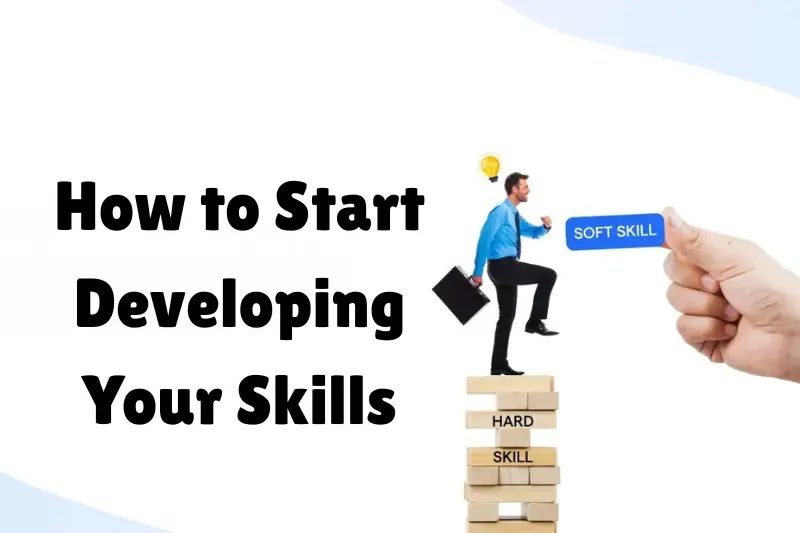
If you’re wondering how to begin, here are practical steps to integrate skill development into your career journey:
- Identify Skills in Demand: Research your industry to see which skills employers value most. This could be through job postings, industry reports, or networking.
- Take Online Courses: Platforms like LinkedIn Learning, Coursera, and Udemy offer courses on nearly every skill imaginable. Certifications from these courses also add credibility to your resume.
- Practice Regularly: Skills are refined through application. Take on projects, volunteer, or practice independently to improve proficiency.
- Seek Feedback: Mentors, colleagues, and supervisors can provide constructive feedback that accelerates your learning and highlights areas for improvement.
- Update Your Resume: Continuously reflect your newly developed skills on your resume and LinkedIn profile. Make sure to include both technical and soft skills to showcase your holistic development.
Real-Life Examples of Skill Development Impacting Careers
Understanding why skill development is important for careers becomes even clearer when we look at real-world examples:
- Tech Professionals: A software developer who learns a new programming language or explores AI and machine learning can qualify for more advanced projects, promotions, or even transition into specialized roles in emerging fields.
- Marketing Specialists: A marketer who develops skills in data analytics, SEO, or social media advertising can significantly increase campaign effectiveness and become an indispensable asset to the company.
- Healthcare Workers: Nurses or healthcare professionals who enhance their skills in patient management systems or advanced clinical procedures often see more career advancement opportunities and can move into supervisory or specialized roles.
- Entrepreneurs: Business owners who learn financial management, digital marketing, or leadership skills can grow their startups faster, adapt to market changes, and compete effectively against larger players.
These examples illustrate that skill development doesn’t just improve your current performance—it can completely transform your career trajectory.
The Role of Lifelong Learning
One of the key reasons skill development is crucial is the concept of lifelong learning. The modern professional landscape changes rapidly: new technologies, market demands, and job roles emerge constantly. What you learned in school or even five years ago may no longer be sufficient.
Lifelong learning encourages you to:
- Stay relevant in your field
- Continuously adapt to change
- Explore new interests and career paths
- Strengthen your professional resilience
By adopting a mindset of continuous learning, you position yourself as a proactive, adaptable professional—qualities highly valued in any industry.
Balancing Technical and Soft Skills
While technical skills often get the spotlight, soft skills are just as critical for career success. Employers increasingly prioritize abilities like teamwork, leadership, communication, and emotional intelligence.
For instance:
- A project manager may have all the technical expertise but will struggle if they cannot motivate a team or communicate clearly.
- A software engineer may know every coding language but may not advance if they cannot collaborate effectively with colleagues or stakeholders.
The most successful professionals balance technical and soft skills, making them versatile, effective, and highly employable.
Tips for Making Skill Development a Habit
Skill development doesn’t have to be overwhelming. Here are some actionable strategies to make it part of your daily or weekly routine:
- Set Clear Goals: Define what skills you want to acquire or improve and set realistic timelines.
- Dedicate Time Daily: Even 30 minutes a day can make a difference over time.
- Combine Learning with Doing: Apply what you learn immediately—practice solidifies knowledge.
- Stay Curious: Read industry blogs, watch tutorials, attend webinars, and network with peers.
- Track Your Progress: Keep a journal or a digital record of the skills you’ve learned and achievements gained.
By turning skill development into a habit, you continuously expand your capabilities without feeling overwhelmed.
The Long-Term Benefits of Skill Development
Investing in skill development has both immediate and long-term benefits:
- Career Stability: Being adaptable and skilled reduces the risk of job loss in changing industries.
- Higher Earning Potential: Professionals with advanced or in-demand skills often command higher salaries.
- Job Satisfaction: Competence builds confidence, reduces stress, and increases enjoyment at work.
- Leadership Opportunities: Skilled professionals are more likely to be entrusted with managerial or strategic roles.
- Professional Reputation: Being recognized as a knowledgeable and versatile worker can enhance your personal brand and open doors to networking and mentorship opportunities.
Conclusion
In today’s dynamic professional world, why skill development is important for careers cannot be overstated. It’s no longer sufficient to rely solely on your education or work experience. Continuous skill enhancement allows you to stay competitive, confident, and ready to seize new opportunities.
Whether you’re starting your first job, considering a career change, or aiming for a leadership position, skill development should be at the core of your career strategy. By committing to lifelong learning, embracing both technical and soft skills, and actively applying what you learn, you not only boost your career growth but also prepare yourself for the unpredictable challenges and exciting opportunities that lie ahead.
Invest in yourself today—your future career will thank you for it.
FAQs
1. What is skill development?
Skill development is the process of learning, improving, or acquiring abilities—both technical and soft skills—that enhance your performance at work and help you grow professionally.
2. Why is skill development important for careers?
Skill development is important for careers because it helps you stay competitive, enhances your job performance, opens new opportunities, builds confidence, and improves your career prospects.
3. What are the types of skills I should focus on?
You should focus on:
Technical skills: Job-specific abilities like coding, data analysis, digital marketing, or design.
Soft skills: Interpersonal abilities like communication, leadership, teamwork, problem-solving, and time management.
4. How can I start developing my skills?
You can start by:
Identifying in-demand skills in your industry
Taking online courses and certifications
Practicing regularly and applying your knowledge
Seeking feedback from mentors or colleagues
Updating your resume and professional profiles with new skills
5. How does skill development improve my resume?
Highlighting your skills on your resume shows recruiters that you are proactive, adaptable, and committed to personal and professional growth—qualities that increase your chances of being noticed.

